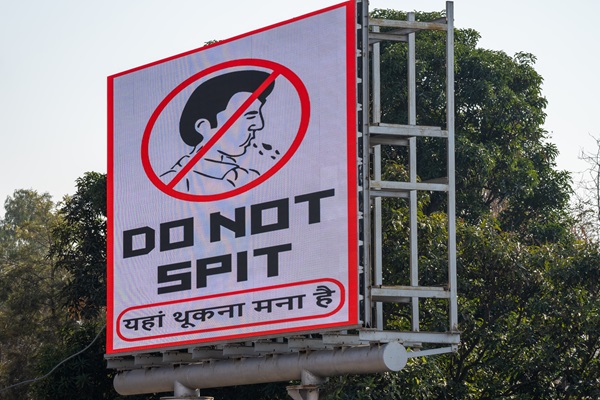.png)
BCCI Can Call Time-Out On India’s Spitting Habit
India battles a costly, unhealthy spitting habit. Can cricket icons and the BCCI inspire a cleaner nation on and off the field?


Krishnadevan is Editorial Director at BasisPoint Insight. He has worked in the equity markets, and been a journalist at ET, AFX News, Reuters TV and Cogencis.
June 1, 2025 at 4:51 AM IST
If there’s one thing that unites India across states, languages, and even cricket loyalties – it is the stubborn national habit of spitting in public. In fact, India could stake claim to being the expectorative capital of the world.
From paan-stained staircases at railway stations to the crimson arcs decorating government office walls, the evidence is everywhere. Indian Railways and various local civic bodies spend billions of rupees scrubbing away the aftermath.
But the real price goes beyond money.
Spitting is a proven vehicle for spreading diseases like tuberculosis, hepatitis, and, as the pandemic reminded us, any virus with a flair for travel.
During COVID-19, cities tried everything from fines to community service. Yet, for every offender caught, a dozen more slip away, blending into the crowd with the stealth of a seasoned batsman stealing a single.
Despite laws, fines, and awareness drives, changing a habit that’s become a cultural reflex is no easy task. And television visuals during a high-voltage IPL match of a star cricketer, front and centre, spitting on the field does not help the cause.
Not a villainous act, but a reflex. The irony is hard to miss. Even as public health officials are urging us to keep our spit to ourselves, our cricketing heroes are beaming the opposite message into millions of living rooms.
Cricket’s influence in India is unmatched. Our cricketers are trendsetters, style icons, and, for better or worse, national role models. So, when a player spits on camera, it’s not just a momentary lapse – it is a national teaching moment.
Here’s where the BCCI could play a game-changing role. The BCCI has already shown it can set the tone for the nation’s cricketing culture, whether it’s lifting the saliva ban for ball shining or introducing new rules to keep the game balanced. But what if the BCCI took the next step and banned spitting on the field altogether, not just for hygiene, but as a public message?
Imagine the impact if the IPL, with its global reach and wall-to-wall coverage, became the first major league to say, “We don’t spit. Neither should you.”
Multilingual ads with Virat Kohli, Rohit Sharma, Harmanpreet Kaur and Smriti Mandhana, bats on shoulders, grinning at the camera saying “We keep our pitch clean. Let’s keep our streets clean too,” could do more in thirty seconds than a thousand government posters.
Maybe even a “Best Hygiene” award alongside the Orange Cap. If nothing else, it would give the commentators something new to talk about between overs.
And while they’re at it, perhaps the BCCI could also spit out a few of its sponsorship choices. It’s hard to rally the nation against a spitting habit when the same telecast is brought to you by a 'mouth freshener' that has single-handedly redecorated the country’s walls in a hundred shades of red. If the BCCI is serious about hygiene, it must ban pan masala ads and their endlessly creative ‘surrogate’ cousins from cricket broadcasts and stadiums. One can’t deliver a sermon on cleanliness while handing the mic to the makers of pan masala and surrogate gutka brands.
The point is, cricket’s influence goes far beyond the scoreboard. It shapes how we play, how we cheer, and, yes, sometimes, how we spit. Because in the end, cricket’s greatest legacy isn’t just in the record books.
It is in the everyday lives it shapes, one small habit at a time.



